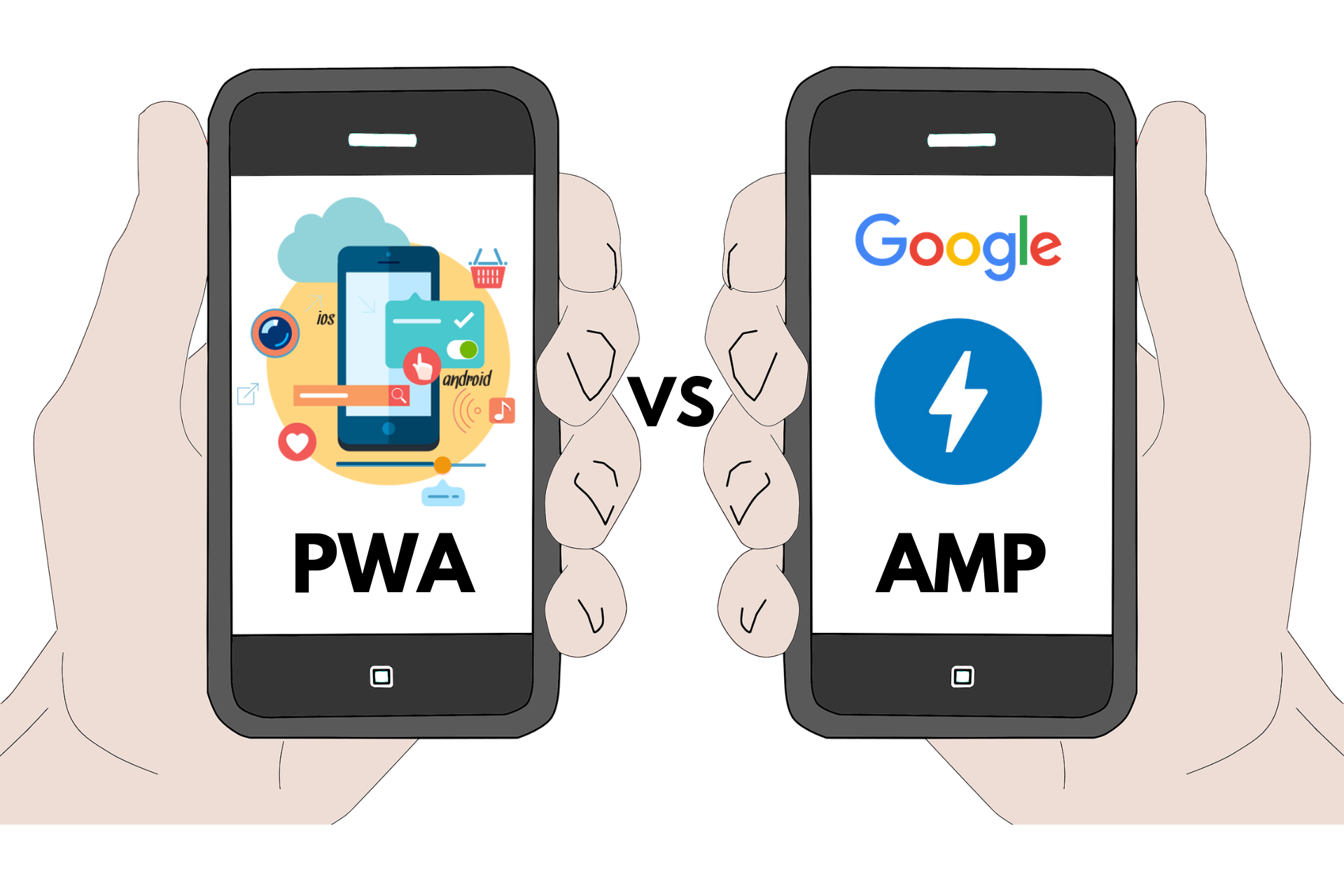PWA and AMP are two different technologies having the same objective of improving user experience. Let’s zoom into the features of each of these technologies and how they differ from each other.
PWA:
PWA or Progressive web apps refer to the web pages and applications that are designed to offer superior mobile experience to users. The functional properties of PWAs include offline, push notifications and device hardware access. Google leads the progressive Web Apps by assisting developers in creating web applications carrying similar features of native apps which are fast, reliable and engaging.
PWAs have successfully left behind the native apps and are being considered as the future of all mobile applications. It offers both the beneficial features of the web and mobile. They allow users to fully utilize the advanced features backed by modern browsers in their mobile responsive websites to give them an app like experience on the mobile web.
Here is an example that can better explain you the concept. If you try to open Flipkart.com from your mobile browser, the first appearance of the site will be like you have opened the app but in reality it is not the app it is just a PWA.
Features
— Progressive- it is suitable for every user irrespective of his browser selection
— Responsive – it works well with any device including desktop, mobile, tablet etc
— Faster- it offers faster loading facility with App Shell (a design concept)
— Connectivity- as mentioned above it is able to work offline and on poor network
— Secure-these apps can be accessed through https to ensure safe and secure content
— Bookmark- users can easily bookmark and pin their favorite apps to their home screen without installing them from an app store.
— Shareable- it can be shared with urls
AMP:
AMP also known as Accelerated Mobile Pages help developers create web pages that load almost instantly with a unique coding language which is an advanced version of HTML and CSS. This coding language restricts the usage of Java script. In simple words, AMP is the name of a feature that is developed on open source medium and developed by Google in collaboration with Twitter for the betterment of page loading performance of web pages. It is well known for providing an amazingly fast browsing experience on mobiles.
AMP initially was developed as a response to Facebook’s instant article but eventually it has become a strong platform for delivering content directly from search results at nearly lightning speed.
Advantageous features of AMPs
— Pages are loaded quickly and cashed easily
— It makes websites 4 times faster by reducing the loading time to less than 1 second
— Initially it was used for news articles but gradually it has extended to other verticals of content
— Enhances user engagement and
— Suitable for all existing formats of ads
Difference between AMP and PWA
With advanced features and power packed performance Progressive web apps are sure to replace native apps. Now comes the question of AMP. Here is a competitive study between PWA and AMP.
1. Engagement:
Progressive apps use contents that go beyond HTML or CSS and such contents are far more engaging than AMP. This is because AMP framework restricts the usage of Javascript which is required to create interactive solution. Dynamic content is required for AMP.
2. Discoverability
AMP is a better option than PWA when it comes to discoverability. This is because AMP gets the support from a carousel in Google search results which PWA does not.
3. Speed
Again AMP is more advantageous than PWA in terms of speed due to the same reason for which Progressive app wins the battle of engagement. AMP is only able to support lightweight content which loads quickly.
If your aim is to build a fast native app like experience with the discoverability of web then you must go for PWA. Both AMP mobile app and PWA web app come with their own set of benefits. The choice completely depends on your business requirement. If your website has inclination towards heavy content, try AMP. To get expert advices to help you in making the decision contact a renowned and experienced App development company.












